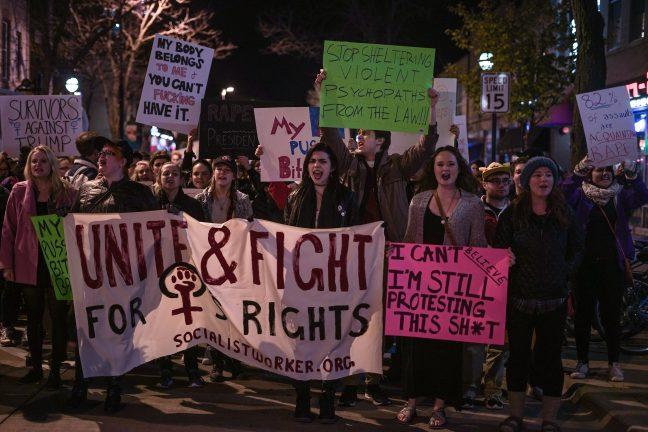Because the University of Wisconsin’s current sexual harassment policy does not document anonymous sexual assault reports, officials believe it opens up the university up to lawsuits, making it difficult to track repeat sexual offenders.
At the moment, UW complies with Title IX regulations and the Clery Act, a law working to ensure transparency in campus crime policy and statistics, said Jamie Felton, a spokesperson for Promoting Awareness, Victim Empowerment.
UW also encourages its students to follow the Responsible Action Guidelines, which outlines how students should respond to instances of crime and violence on campus, Felton said.
In addition, UW spokesperson Meredith McGlone said the Office of the Provost recognizes that sexual harassment can expose the university to legal liabilities, and encourages students to report when they encounter or witness sexual assaults.
But, McGlone confirmed sexual assault and harassment cases remain under-reported.
Sexual assault victims on campus can go through either the informal solution or the formal investigation to file complaints, McGlone said. Informal reports involve private complaints from victims and don’t require a formal investigation, unlike formal reports.
“A formal investigation cannot be done confidentially, as due process requires that the accused be notified of the allegation against them and provided an opportunity to respond.” McGlone said.
Disciplinary action will be enforced if the accused person is found responsible during a formal investigation, but will not be enforced upon the accused person for an informal report, McGlone said.
While there is no requirement for documentation of informal reports, victims who report their sexual assault informally can take certain actions to have their report documented, such as filing a letter of expectations with the university, McGlone said.
Even though retaliation is strictly prohibited under university policy — and UW strives to provide sexual assault victims with protection — many students are still concerned about revealing their names for formal investigations, McGlone said. Because of this, many sexual assault complaints continue to remain anonymous and undocumented.
But, despite the university’s policy, Felton commended the new sexual assault awareness education for freshmen for being more interactive.
U Got This!, which became available early August, allows students to interact with the program, unlike its predecessor, The Tonight Program.
“Besides completing the assessments online, first-year students are also required to attend a wise workshop regarding sexual assault on campus, thus making this program more interactive,” Felton said.
As the university works on ways to combat sexual assault, Felton said PAVE continues to provide resources to sexual assault victims on how to report their incidents.
“PAVE encourages all sexual assault survivors to heal in the way that is the best for them,” said Felton.


